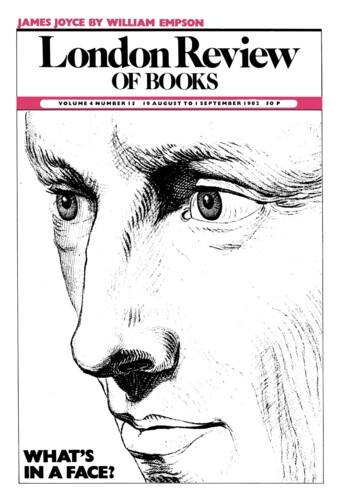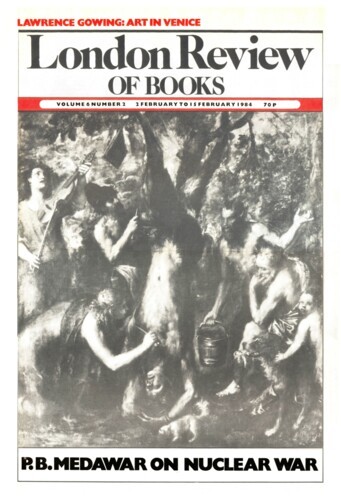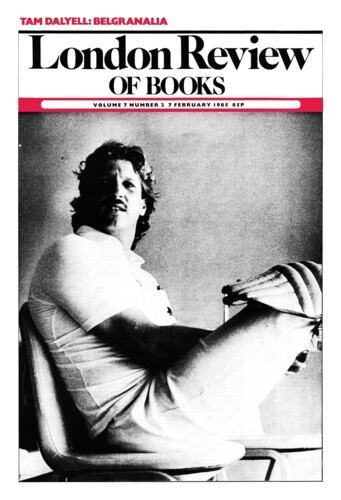On the Verge of Collapse
John Sturrock, 19 August 1982
The Siren’s Song is the first chance English readers have had to experience Maurice Blanchot. If it is the case, as Gabriel Josipovici pre-emptively asserts in his introduction, that Blanchot ‘is, with Walter Benjamin, the finest literary critic of the century’, then we have been grievously remiss in leaving him for so long untranslated. For Blanchot isn’t new: he is in his mid-seventies, he has been writing criticism for forty years, he has published 15 books and he is, in France, an undoubted star. Even there, however, I suspect that few people would feel as generous towards him as Josipovici does, because Blanchot is a writer whom many French readers, trained though they be in the rigours of the higher abstraction, find too much for them. He was never exactly a simple writer and with the years he has become tiresomely opaque. His most recent book, of fragments pessimistically titled L’Ecriture du Désastre, is so cryptic as to border on the repellent. Blanchot is too hermetic a thinker to rank with those contemporary French theorists who are difficult but interestingly difficult – with Lacan or Derrida. He is awfully serious about literature, and awfully hard to enjoy.



